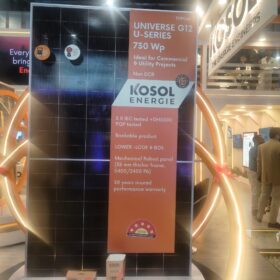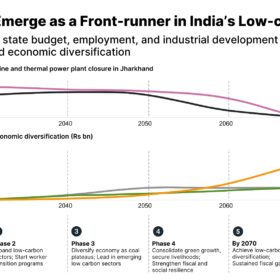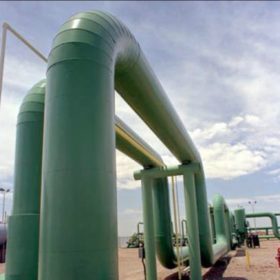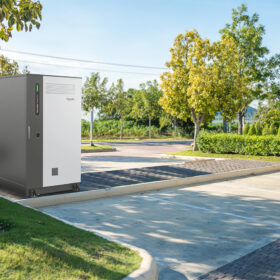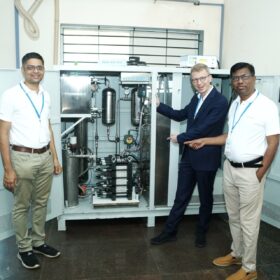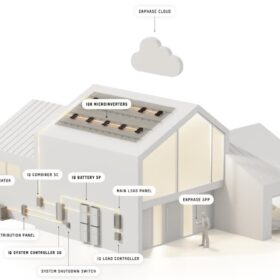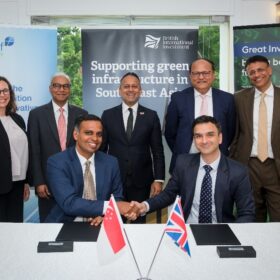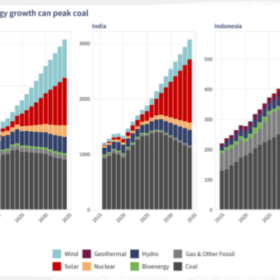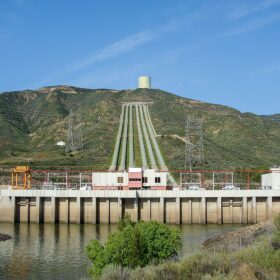Kosol Energie unveils 730 Wp G12 TOPCon solar panel, expands into BESS production
Kosol Energie unveiled its high-efficiency 730 Wp G12 TOPCon solar panel for commercial and utility-scale projects at REI 2025. The company also announced plans to expand its module manufacturing capacity by an additional 6 GW, bringing the total to 9 GW by late 2026. In addition, Kosol Energie is venturing into large-scale battery energy storage systems (BESS), with an initial planned annual production capacity of 3–3.5 GWh.
Unlocking renewable energy in Chhattisgarh
Chhattisgarh’s energy sector received over INR 16,672 crore in government support in fiscal year 2024, with fossil fuel subsidies outweighing clean energy support four times. Clear net-zero targets can help government revenues shift from fossil to clean energy, says an analysis by the International Institute for Sustainable Development and Swaniti Initiative.
Jharkhand can emerge as a front-runner in India’s low-carbon transition
Jharkhand’s vast renewable energy potential, combined with its industrial base and critical mineral reserves, positions the state to emerge as a hub for low-carbon manufacturing, ranging from EVs, solar panels and battery energy storage systems (BESS) to green hydrogen production.
Pipelines for the future: Engineering challenges in hydrogen transport
As nations move towards low-carbon economies, hydrogen pipelines could become the backbone of industrial decarbonisation, linking production hubs to demand centres with efficiency, safety, and reliability. Building this backbone is not just an engineering task; it is a strategic investment in a cleaner energy future.
Schneider Electric unveils 200 kWh C&I battery storage system
Schneider Electric has introduced a modular 200 kWh battery energy storage system for commercial and industrial (C&I) users, scalable up to 2 MWh across 10 units.
The Hydrogen Stream: HYDGEN raises $5 million to deliver industrial-scale green hydrogen on-site and on-demand
The investment, led by energy transition-focused venture capital firm Transition VC, will accelerate HYDGEN’s efforts to make ultra-pure, cost-efficient hydrogen available directly at the point of use through its anion exchange membrane (AEM) electrolyzer technology.
Enphase announces complete off-grid solar-storage system
Enphase Energy has introduced a complete off-grid solar and storage system that integrates batteries, microinverters, and generator control, with international rollout set for 2026.
Blueleaf Energy secures $75 million from BII to advance 2 GW of renewable energy projects
Blueleaf Energy has secured $75 million financing facility from British International Investment (BII) to accelerate development of nearly 2 GW of utility-scale solar, wind, and energy storage capacity in India.
Coal power in India could peak by 2030, says CREA
If India achieves its stated clean energy target, power-sector emissions across this major coal-growth market could begin to decline by 2030, according to a new analysis by the Centre for Research on Energy and Clean Air (CREA).
Unlimited low-cost energy storage
In its latest monthly for pv magazine, the International Solar Energy Society (ISES) explains how pumped-hydro energy storage combined with PV power generation could provide 24/7 power to data centres
